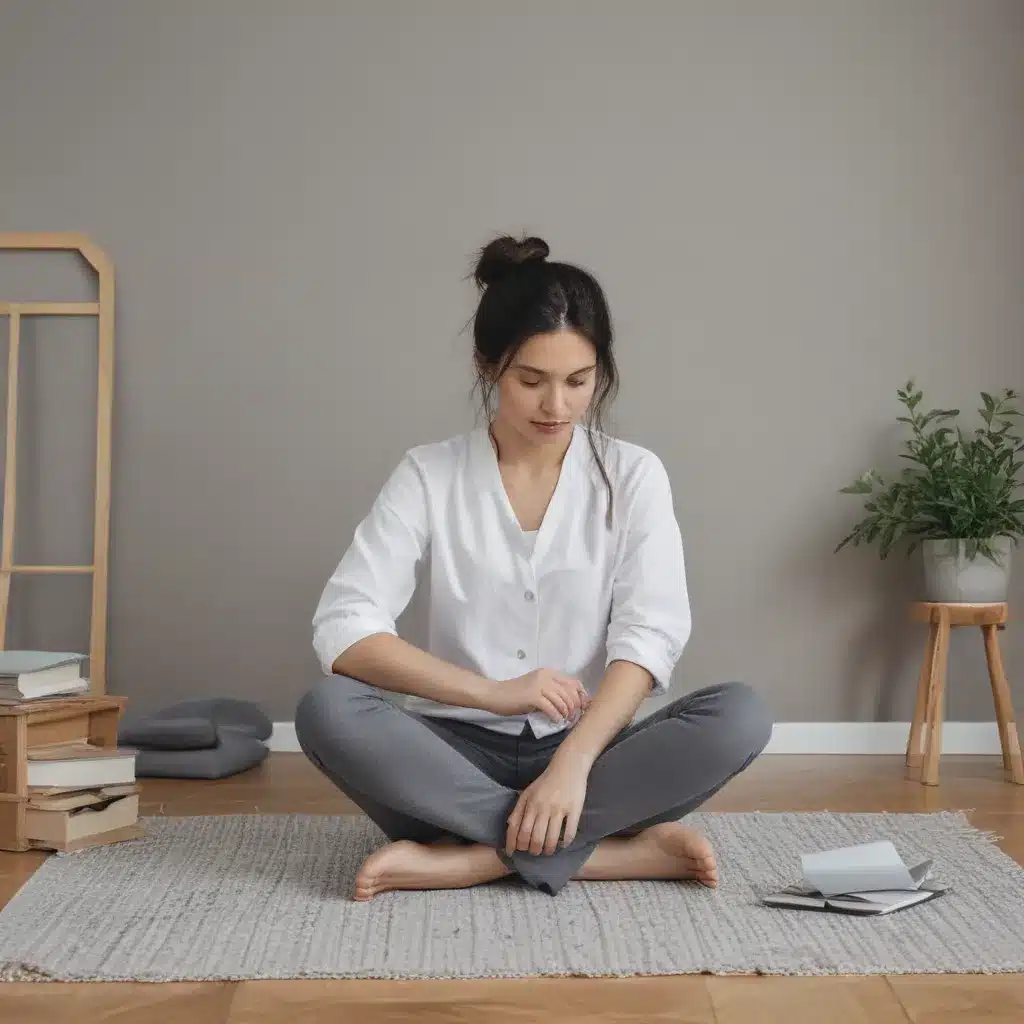Unravelling the Clutter-Anxiety-Depression Cycle
I’ll never forget the day I first discovered the profound link between clutter and my mental well-being. As I sat amidst the piles of stuff strewn throughout my home, I felt an overwhelming sense of anxiety and despair wash over me. It was as if the very walls were closing in, suffocating me with their cluttered embrace.
Determined to regain control, I embarked on a decluttering journey that would forever change my perspective. Through my research, I stumbled upon a startling revelation – the connection between clutter, depression, and anxiety is not just anecdotal, but scientifically documented.
Clutter’s Insidious Grip on Mental Health
According to a study published in the academic journal Life at Home in The Twenty-First Century, there is a “definite link between an over-abundance of household objects (what they called ‘stressful’ home environments) and the homeowner’s health.” The researchers found that this correlation was particularly pronounced for women, who tend to be more affected by the negative impacts of clutter.
As one woman shared, “I was blown away by the number of people who are in the same place or came from that same place of clutter and emotional turmoil. It’s a vicious cycle: anxiety or depression can lead to a cluttery home and a cluttery home can lead to depression and more anxiety, and we tend to do less about the house, which makes it even worse yet.”
The researchers also discovered that the average room contains over 2,000 visible objects, particularly in high-traffic areas like the office or computer space. This overwhelming visual stimuli can contribute to feelings of anxiety and restlessness, making it increasingly difficult to focus and find a sense of calm.
The Burden of ‘Child-Centered Homes’
But the story doesn’t end there. The study also revealed a troubling trend in American households – the rise of “child-centered homes.” In these environments, children’s belongings spill out into the living spaces, dining rooms, and even parents’ bedrooms.
This clutter-heavy dynamic is often driven by parents who work more to maintain their quality of life and then feel guilty about not spending enough time with their children. To compensate, they purchase more for their kids, further exacerbating the issue.
Confronting the Emotional Obstacles
As if the practical challenges of decluttering weren’t enough, there are often deep-seated emotional barriers that stand in the way. Many people find themselves paralyzed by sentimentality, guilt, and a perceived lack of time.
As one minimalist shared, “Even when the family is ready to declutter and be rid of items, they tend to get paralyzed by emotions- either with sentimental attachments, guilt about the value of the items and believing they should sell it, and having such a cramped schedule, they don’t have time to declutter.”
Taking the First Step
But there is hope. By starting small and focusing on one manageable task at a time, the path to a clutter-free, anxiety-free life becomes clearer. As another minimalist advises, “Stay focused on the one drawer until it’s done (even if it takes a couple of days, it’s ok- progress is still happening!). I recommend starting in the kitchen- it’s the heart of the home. Keep your focus on it for at least a month before moving on to other areas.”
And when the negative self-talk starts to creep in, it’s crucial to reframe those thoughts. Instead of “I’m too tired,” try “I have enough energy.” Rather than “I hate dishes,” shift to “I love having dishes done.” The power of positive affirmations cannot be overstated in this journey.
Cultivating a Sense of Calm
Ultimately, the path to well-being through minimalism is not a quick fix, but a gradual process of self-discovery and growth. By chipping away at the clutter, one small step at a time, the seemingly insurmountable task becomes manageable, and the benefits begin to emerge.
As the cluttered surfaces give way to open, clear spaces, a sense of calm and control starts to permeate the home. The vicious cycle of clutter, depression, and anxiety is slowly but surely broken, replaced by a newfound sense of peace and clarity.
Embracing the Minimalist Mindset
Of course, the journey to a minimalist lifestyle is not without its challenges. For many, the emotional attachment to material possessions can be a significant hurdle to overcome. But by shifting the focus from the value of the item to the value it brings to one’s life, the process becomes easier.
As a professional cleaning service in Nottingham, UK, we’ve seen firsthand the transformative power of minimalism. Time and again, our clients have shared stories of how decluttering their homes has led to a profound improvement in their mental well-being, allowing them to reclaim their sense of control and serenity.
The Path to a Brighter Future
The journey to a clutter-free, anxiety-free life is not an easy one, but it is a journey worth taking. By confronting the emotional obstacles, embracing the minimalist mindset, and taking that crucial first step, individuals can break free from the clutches of the clutter-depression-anxiety cycle and embark on a path to greater well-being.
So, if you find yourself overwhelmed by the weight of your possessions, take heart. The road ahead may be long, but the destination is one of peace, clarity, and a renewed zest for life. After all, the benefits of purging minimalism for well-being are simply too profound to ignore.







